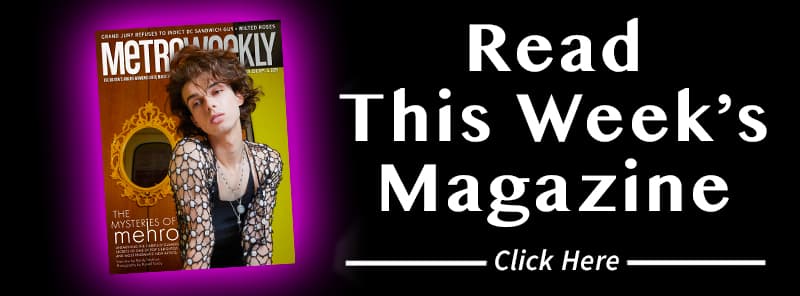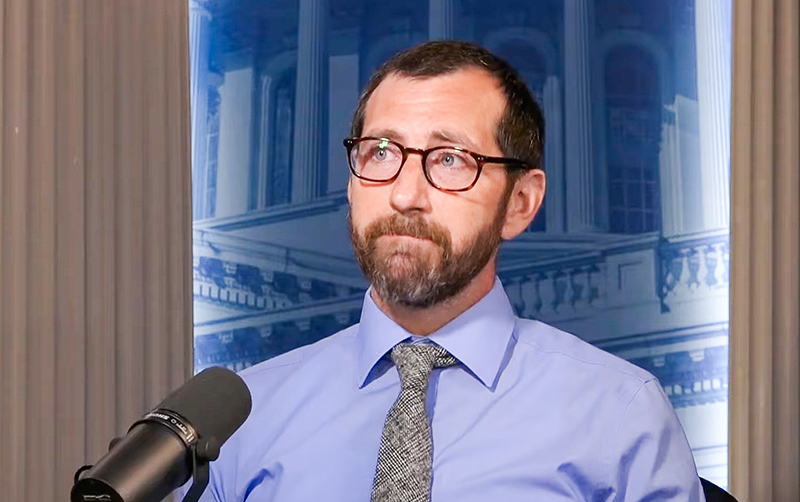Supreme Court Sides With Religious Parents Over LGBTQ Books
6-3 ruling says Montgomery County schools violated religious freedom by denying parents advance notice and opt-outs for LGBTQ-themed classroom books.

The U.S. Supreme Court has sided with a group of parents in Montgomery County, Maryland, ruling that the county’s public school system violated their religious freedom by refusing to let them opt their children out of lessons featuring LGBTQ-themed books.
In a 6-3 decision, the court’s conservative majority ruled that the government burdens parents’ religious freedom by refusing to let them opt out of lessons featuring books that conflict with their beliefs opposing homosexuality or the existence of LGBTQ people.
The case, known as Mahmoud v. Taylor, involves three families of elementary school students — one Muslim, one Catholic, and one Ukrainian Orthodox — who sued over the lack of an opt-out, arguing it infringed on their right to freely exercise their religion and direct their children’s religious upbringing.
Previously, Montgomery County allowed parents with religious objections to opt their children out of classroom instruction or activities that conflicted with their beliefs, as long as the requests did not become “too frequent or burdensome,” according to court documents.
In 2022, the Montgomery County Board of Education added LGBTQ-inclusive storybooks to its English Language Arts curriculum for elementary students, following new Maryland rules promoting “educational equity,” reports CBS News.
Initially, the board allowed parents to opt their children out of lessons incorporating the LGBTQ books. But in March 2023, it ended the policy and stopped giving families advance notice, arguing the opt-outs had become “unworkable” due to high absentee rates. Teachers, the board said, were burdened with planning alternate lessons, finding space for excused students, and arranging supervision.
The board’s decision sparked backlash from parents, more than 1,000 of whom signed a petition and spoke at meetings demanding the opt-out provision be reinstated.
After the three families sued, a federal judge in Maryland and the 4th U.S. Court of Appeals ruled in favor of the school board, finding little evidence that the parents were compelled to violate their religious beliefs. The families then appealed to the Supreme Court, which heard arguments in April.
Writing for the majority, Justice Samuel Alito said the parents are entitled to a preliminary injunction while their lawsuit proceeds, and ordered Montgomery County schools to notify families in advance when one of the contested books will be used, allowing them to excuse their children from class.
“[W]e hold that the Board’s introduction of the ‘LGBTQ+-inclusive’ storybooks — combined with its decision to withhold notice to parents and to forbid opt outs — substantially interferes with the religious development of their children and imposes the kind of burden on religious exercise” that the court has previously found unacceptable, Alito wrote.
“We reject this chilling vision of the power of the state to strip away the critical right of parents to guide the religious development of their children,” he continued.
Moreover, Alito argued that the books convey a specific message that same-sex marriage and transgender identity should be celebrated. Citing one of the challenged titles, Prince & Knight, he said the story — about a prince who marries a male knight instead of a princess — encourages young readers to adopt pro-LGBTQ views.
“For young children, to whom this and the other storybooks are targeted, such celebration is liable to be processed as having moral connotations. If this same-sex marriage makes everyone happy and leads to joyous celebration by all, doesn’t that mean it is in every respect a good thing?” Alito wrote. “High school students may understand that widespread approval of a practice does not necessarily mean that everyone should accept it, but very young children are most unlikely to appreciate that fine point.”
Pointing to another book, Uncle Bobby’s Wedding, Alito noted that while a majority of Americans may support same-sex marriage, the story’s embrace of a same-sex couple runs counter to the religious beliefs conservative parents wish to instill in their children.
“It is significant that this book does not simply refer to same-sex marriage as an existing practice. Instead, it presents acceptance of same-sex marriage as a perspective that should be celebrated,” Alito wrote, adding that the implicit message of the book — and others like it — threatens to undermine the parents’ anti-LGBTQ religious beliefs.
“[W]e cannot accept the [Board of Education’s] characterization of the ‘LGBTQ+-inclusive’ instruction as mere ‘exposure to objectionable ideas’ or as lessons in ‘mutual respect.’ As we have explained, the storybooks unmistakably convey a particular viewpoint about same-sex marriage and gender. And the Board has specifically encouraged teachers to reinforce this viewpoint and to reprimand any children who disagree. That goes far beyond mere ‘exposure.'”
Writing on behalf of the court’s three liberal justices, Justice Sonia Sotomayor — who read her dissent from the bench — rejected the plaintiffs’ assertions and accused the court’s conservatives of inventing a previously nonexistent constitutional “right” to avoid exposure to material that parents might find objectionable.
“Public schools, this court has said, are ‘at once the symbol of our democracy and the most pervasive means for promoting our common destiny.’ They offer children of all faiths and backgrounds an education and an opportunity to practice living in our multicultural society. That experience is critical to our Nation’s civic vitality,” Sotomayor wrote. “Yet it will become a mere memory if children must be insulated from exposure to ideas and concepts that may conflict with their parents’ religious beliefs.”
Sotomayor continued, arguing that the court’s requirement for advance notice and opt-outs will “impose impossible administrative burdens on schools” and may “inflict long-lasting harm on students’ learning and development” due to classroom disruptions and student absences.
“[T]he majority closes its eyes to the inevitable chilling effects of its ruling,” she wrote. “Many school districts, and particularly the most resource strapped, cannot afford to engage in costly litigation over opt-out rights or to divert resources to tracking and managing student absences. Schools may instead censor their curricula, stripping material that risks generating religious objections.
“The Court’s ruling, in effect, thus hands a subset of parents the right to veto curricular choices long left to locally elected school boards,” she concluded. “Because I cannot countenance the Court’s contortion of our precedent and the untold harms that will follow, I dissent.”
Support Metro Weekly’s Journalism
These are challenging times for news organizations. And yet it’s crucial we stay active and provide vital resources and information to both our local readers and the world. So won’t you please take a moment and consider supporting Metro Weekly with a membership? For as little as $5 a month, you can help ensure Metro Weekly magazine and MetroWeekly.com remain free, viable resources as we provide the best, most diverse, culturally-resonant LGBTQ coverage in both the D.C. region and around the world. Memberships come with exclusive perks and discounts, your own personal digital delivery of each week’s magazine (and an archive), access to our Member's Lounge when it launches this fall, and exclusive members-only items like Metro Weekly Membership Mugs and Tote Bags! Check out all our membership levels here and please join us today!

























You must be logged in to post a comment.